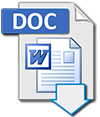Managerial Revolution in Islamic Education in Indonesia: Enhancing Quality Through Innovative Approaches
DOI:
https://doi.org/10.29240/jsmp.v9i1.13161Keywords:
Managerial revolution, Islamic education, Innovative approachesAbstract
In the transformation and development of Islamic education, various challenges are faced, particularly in improving the quality of management and the relevance of learning. This study examines the managerial revolution in Islamic education through innovative approaches aimed at enhancing the quality of management and teaching within Islamic educational institutions. The method employed is a literature review, which gathers and analyzes various relevant literatures on innovations in the management of Islamic education, including journals, books, articles, and research reports. The approaches applied in this study include transformational leadership and strategic management, which are believed to create significant changes in the management of Islamic education, enabling it to address contemporary challenges. The primary focus of this research is to analyze the application of various innovative approaches, such as the use of technology in learning, the enhancement of leadership skills in educational management, and the development of a curriculum that is both relevant and adaptable to the evolving needs of society. The aim of this research is to explore how innovative managerial revolutions can improve the quality of Islamic education through the implementation of new approaches and provide practical recommendations for educators, education managers, and policymakers in creating a more dynamic and high-quality educational environment. The results indicate that the implementation of innovative approaches in the management of Islamic education can lead to positive impacts on the overall quality of education. The integration of technology, transformational leadership, and a relevant curriculum are key elements in creating a more effective and efficient education system. Despite the significant challenges, innovations in the management of Islamic education can bring about meaningful changes to improve the quality and relevance of Islamic education in Indonesia.
Downloads
References
Adams, D., Sumintono, B., Mohamed, A., Syafika, N., & Noor, M. (2018). E-LEARNING READINESS AMONG STUDENTS OF DIVERSE BACKGROUNDS IN A LEADING MALAYSIAN HIGHER EDUCATION INSTITUTION 1. In Malaysian Journal of Learning and Instruction (Vol. 15, Issue 2).
Ali Hajjaj, W. (2024). Transformation Of Islamic Education Management In The Digital Era: Trends And Implications For Learning Quality. Journal of International Multidisciplinary Research. https://journal.banjaresepacific.com/index.php/jimr
Anwar, A., Aziz, A., & Saeed, T. (2021). Management Control Systems and Balance Score Cards: From the Perspective of the Education Industry. www.ijicc.net
Castillo, M. J. A. C., Córdova, M. M. E. R., Orozco, M. E. P., & Gurumendi, J. M. B. (2024). Strategic Planning for the Management of Educational Institutions: Sistematic Review. Journal of Ecohumanism, 3(8), 314–323. https://doi.org/10.62754/joe.v3i8.4733
El Odessy, D. (2023). Supporting Modern Teaching in Islamic Schools: Pedagogical Best Practice for Teachers ed. by Ismail Hussein Amzat (review). Journal of Education in Muslim Societies, 5(1), 123–125. https://doi.org/10.2979/jems.5.1.10
El-Ebiary, Y. A. B., Al-Sammarraie, N. A., Al Moaiad, Y., & Alzubi, M. M. S. (2017). The impact of Management Information System in educational organizations processes. 2016 IEEE Conference on E-Learning, e-Management and e-Services, IC3e 2016, 166–169. https://doi.org/10.1109/IC3e.2016.8009060
Estermann, T., & Kupriyanova, V. (2018). Efficiency, Leadership and Governance: Closing the gap between strategy and execution. www.eua.eu
Gobby, B., & Wilkins, A. W. (2020). Governance and educational leadership. https://www.researchgate.net/publication/337649637
Humes, W. (2019). The Discourses of Educational Management. https://www.researchgate.net/publication/229049110
Irfan, M., Putra, S. J., Alam, C. N., Subiyakto, A., & Wahana, A. (2018). Readiness factors for information system strategic planning among universities in developing countries: A systematic review. Journal of Physics: Conference Series, 978(1). https://doi.org/10.1088/1742-6596/978/1/012046
Ismail Raji’i Al Faruqi. (1989). ISLAMIZATION OF KNOWLEDGE General Principles and Work Plan.
Karfaa, Y. M., Sulaiman, H. B., & Yussof, S. (2019). Management Information Systems for Supporting Educational Organizations: A Case Study through One Private University in Malaysia. International Journal of Scientific and Research Publications, 5(10). www.ijsrp.org
Kezar, A. J., & Holcombe, E. M. (2017). Voices from the Field V iewpoints Shared Leadership in Higher Education: Important Lessons from Research and Practice.
Khalilov, A. T. (2024). Planning And Strategy In Education. www.healthinformaticsjournal.com
Kovalenko, S. M., Romelashvili, O. S., Zborovska, T. V., & Blagun, O. D. (2020). General aspects of introduction of management systems in educational organizations in pursuance of ISO 21001:2018. Management, Economy and Quality Assurance in Pharmacy, 0(4(64)), 4–9. https://doi.org/10.24959/uekj.20.33
Mahardhika, B. N., & Raharja, S. (2023). The Importance of Strategic Planning With Modern Trends in Education. AL-ISHLAH: Jurnal Pendidikan, 15(2), 1807–1820. https://doi.org/10.35445/alishlah.v15i2.2527
Marques, R. P., Santos, C., & Inácio, H. (2019). Organizational Auditing and Assurance in the Digital Age-Preface. https://www.researchgate.net/publication/330938502
Miftachul Huda, et. al. ,. (2020). Global Perspectives on Teaching and Learning Paths in Islamic Education (M. Huda, J. Safar, A. K. Mohamed, K. A. Jasmi, & B. Basiron, Eds.). IGI Global. https://doi.org/10.4018/978-1-5225-8528-2
Mohamed Hashim, M. A., Tlemsani, I., & Matthews, R. (2022). Higher education strategy in digital transformation. Education and Information Technologies, 27, 3171–3195. https://doi.org/10.1007/s10639-021-10739-1
Mounir, G., Idrees, A. M., Sayed, E., Khater, M., Mosallam, E., & Khedr, A. E. (2023). The Impact of Applying ISO Standards Systems on Improving the Quality of the Performance in Higher Educational Institutions in Egypt 457 Original Scientific Paper.
Muniapan, B., Lanka, S., Philippines, the, & Muniapan, B. (2008). Biographical notes: Balakrishnan Muniapan currently teaches HRM, OB, International Management and Asian Management for undergraduates and MBA. In Int. J. Management in Education (Vol. 2, Issue 1).
Rieley, J. B., & Rieley, J. B. (2018). A Comprehensive Planning Model "PERMISSION TO REPRODUCE THIS MATERIAL HAS BEEN GRANTED BY.
Shofiyyah, N. A., Komarudin, T. S., & Hasan, Moch. S. (2023). Innovations in Islamic Education Management within the University Context: Addressing Challenges and Exploring Future Prospects. Nidhomul Haq : Jurnal Manajemen Pendidikan Islam, 8(2), 193–209. https://doi.org/10.31538/ndh.v8i2.3625
Sholeh, M. I. (2023). Technology Integration in Islamic Education: Policy Framework and Adoption Challenges. Journal of Modern Islamic Studies and Civilization, 1(02), 82–100. https://doi.org/10.59653/jmisc.v1i02.155
Downloads
Published
How to Cite
Issue
Section
Citation Check
License
Copyright (c) 2025 Buyung Syukron, Trisnowati Josiah, Maryan Hasan

This work is licensed under a Creative Commons Attribution-NonCommercial-ShareAlike 4.0 International License.


















